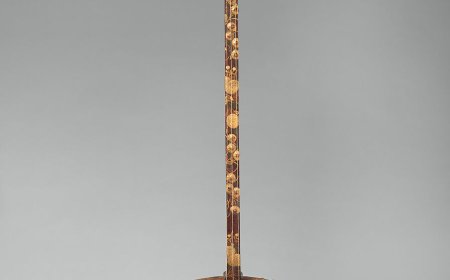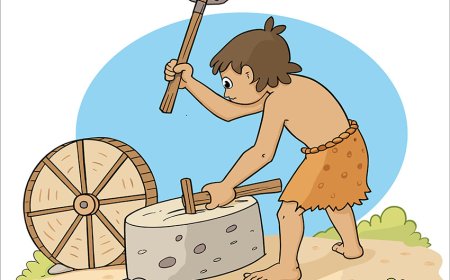Johannes Gutenberg Biography for Students: Inventor of the Printing Press
Discover how Johannes Gutenberg's invention of the printing press revolutionized the way knowledge was shared and changed the world forever
📚 Introduction: Printing the Path to Knowledge
Before books were easy to find, they were written by hand-slowly, carefully, and one at a time. Only the rich or powerful could afford them. Most people couldn't read, and knowledge was hard to share.
But all of that changed thanks to one man: Johannes Gutenberg.
His invention of the printing press around 1440 made books faster and cheaper to produce. This helped ideas spread, boosted learning, and helped create the world of education we live in today.
👶 Early Life in Germany
Johannes Gutenberg was born around 1400 in Mainz, Germany. His full name was Johann Gensfleisch zur Laden zum Gutenberg-a long name for a man with a long-lasting impact!
Not much is known about his childhood, but historians believe:
-
He was the son of a wealthy merchant
-
He learned metalworking, goldsmithing, and mechanics
-
He was skilled in solving technical problems
He eventually moved to Strasbourg, where he began developing his revolutionary idea.
🛠️ The Big Idea: Moveable Type Printing
Gutenberg wanted to find a better way to make books. Copying by hand was slow, and wooden printing blocks wore out quickly.
He invented a mechanical printing press that used:
-
Movable type-small metal letters that could be rearranged
-
A screw press-inspired by wine presses
-
Oil-based ink-that stuck better to metal type
-
A way to mass-produce pages of text
This was the first time books could be printed in large numbers.
📖 The Gutenberg Bible: A Masterpiece
Around 1455, Gutenberg completed his most famous work: the Gutenberg Bible.
It was:
-
1,282 pages long
-
Printed in Latin
-
Made to look like handwritten manuscripts
-
Considered one of the most beautiful books ever printed
He printed about 180 copies-some on paper, some on animal skin (vellum). A few still survive today in museums and libraries.
🌍 Changing the World with Printed Words
Gutenberg's printing press changed history:
📚 More Books, More Readers
-
Books became cheaper and easier to get
-
Literacy increased-more people learned to read
-
Ideas could spread across countries and languages
🎓 A Boost for Education and Science
-
Schools and universities had more materials
-
Scientists could share discoveries and build on each other's work
-
It helped start the Renaissance, Reformation, and the Scientific Revolution
Gutenberg's invention gave power to knowledge and curiosity.
😢 Struggles and Recognition
Even though Gutenberg changed the world, he didn't become rich or famous in his lifetime.
He faced:
-
Financial trouble
-
Legal battles with his business partner
-
Health problems in his later years
He died in 1468, before seeing how powerful his invention would become.
But today, he's remembered as one of the greatest inventors in history.
🏅 Honors and Legacy
Johannes Gutenberg's name lives on through:
-
The Gutenberg Museum in Germany
-
Project Gutenberg, a huge library of free online books
-
Statues, stamps, and celebrations around the world
-
Being ranked #1 in Time-Life's "Most Important People of the Second Millennium"
His invention started the information age-centuries before the internet!
🤩 Fun Facts About Gutenberg
-
His movable metal type was hand-cast and reusable
-
He kept his printing method a secret for years
-
The press could print about 250 sheets a day
-
A complete Gutenberg Bible today is worth millions of dollars
-
The phrase "Gutenberg Galaxy" is used to describe the world shaped by print media
👧👦 Why Johannes Gutenberg is Important
Gutenberg shows us that:
-
One clever invention can change the whole world
-
You don't need to be rich or famous to make a difference
-
Books and learning are powerful tools
-
Sharing ideas helps people grow smarter and more creative
His press helped turn a few readers into millions of readers.
🏁 Conclusion: The Power of the Printed Page
Before Gutenberg, books were rare. After Gutenberg, they became tools of change, freedom, and imagination.
What would YOU print for the world to see?Whether it's a book, a comic, or an idea-you have the power to share it with everyone.




















































